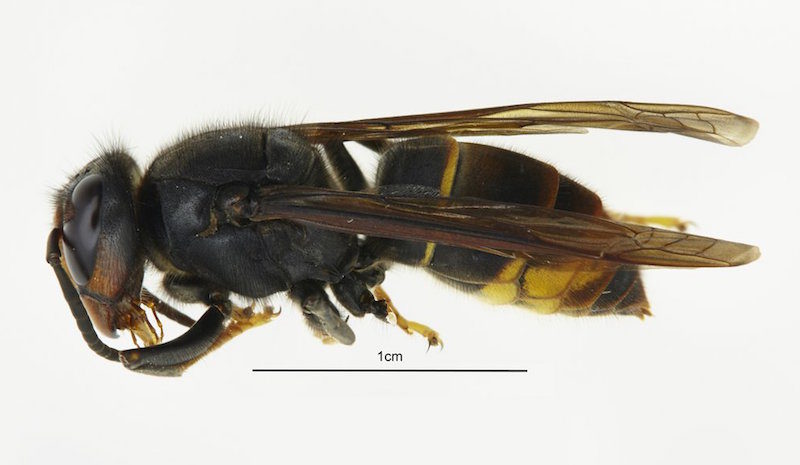Asian hornet 2017
Last month I wrote about the discovery and predicted spread of the Asian hornet (Vespa velutina) once (if) it gets established in the UK.
New Asian hornet isolation in North Devon
The National Bee Unit (NBU) and DEFRA have today (26th September 2017) reported the identification of an Asian hornet in the Woolacombe area of North Devon. This is about 100 miles from the Tetbury site (near Stroud) where the Asian hornet was isolated in September last year. There was an additional isolation in North Somerset in autumn 2016, though the precise location was not publicised.
Genetic analysis by the NBU will determine whether the new isolate is related to previous isolates. This would imply, though not prove, that the hornet may be established and breeding on mainland UK.
I’m speaking at the Devon Beekeepers Convention in Totnes next month and expect to hear more about efforts to track down and destroy the (or nests) at the meeting.
The Asian hornet appears to now be established on Jersey in the Channel Islands.

Join the discussion ...